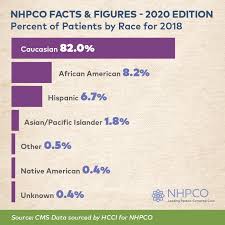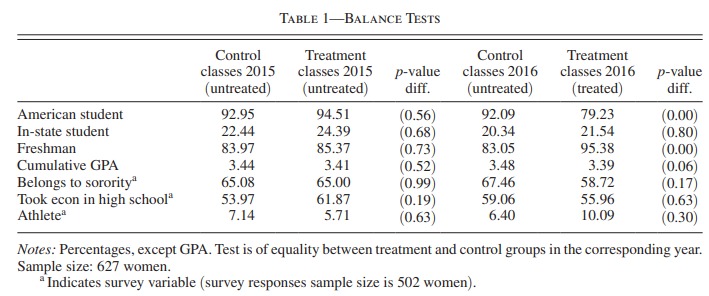
At-home care for seniors is an option for many older people, but it can be costly. At-home care costs will vary depending on how many hours a professional healthcare worker works, and whether they charge per hour, day, or night. It is important that you consider all costs before hiring a caregiver. Although the original Medicare plans did not cover home-care, they do provide coverage for medically necessary care. It is important that you remember that Medicare doesn't cover non-medical treatment.
Benefits to seniors who need live-in-care
Senior citizens can enjoy many benefits from live-in care. One, senior citizens are more comfortable living in a home with a caregiver than if they were to live alone. Caregivers can help with balance, strength and cognition. They are trained to spot dangers and prevent them from happening. Additionally, seniors can be assisted by live-in caregivers with safety improvements like grab bars and rails. Senior citizens can be helped to maintain independence by live-in caregivers.
One of the benefits of senior live-in caregivers is the reduction in stress. They are available to help seniors 24 hours a week because live-in caretakers are always available. They offer families security and peace of minds. Live-in care is a great option for seniors who need 24-hour support. If your senior loved one is suffering from dementia, this type of care is especially beneficial for them.

Costs of senior care at home
Costs for senior care vary depending on how much care is required. Many elderly adults who do not require extensive help may only need a few hours a day of companionship. Others may require more assistance with daily activities, medication management or household chores. Here are some tips for those who are interested in hiring a professional home healthcare agency to provide their in-home services.
New York State is broken into 10 regions with differing rates. Utica and Buffalo are two of the most affordable major cities in the state. Rates in the Albany Capital Region are lower than state rates, at $5,148 per monthly. Prices in New York City are higher, however, as Ithaca, Rochester, Syracuse, and Syracuse all have higher-than-average rates. There are many factors that affect the cost of in-home care, regardless of where you live.
You have options to hire a caregiver
There are several options for hiring a caregiver for seniors. Employers may choose to employ an independent caregiver to perform a range of tasks. This caregiver is usually responsible for daily activities and may also be trained in medical tasks. However, the pay rates for this type of caregiver vary widely. An independent caregiver is generally less expensive and can be more familiar to the client. Nonetheless, it is important to know what to expect before hiring a care provider.
Placement agencies can save you the time and hassle of finding a caregiver. This agency refers caregivers to employers and ensures a better quality service. Placement agencies have disadvantages. The caregivers are paid per hour and the employer pays Social Security taxes and unemployment insurance. For supervising caregivers, other placement agencies might charge extra fees.

You need to select a home care agency
Before hiring a home care agency for your aging parent or loved one, you should know what to look for. Make sure that they are insured and bonded. It is also important to find out if background checks are done on employees and whether they have insurance and bond. Also, ask about how many caregivers they have and whether they rotate between other positions. You should also find out what their quality-of-care standards are and whether they have conflict resolution procedures.
After you have narrowed your list, you should schedule a free, in-depth interview with the staff of each agency. Make sure the people you speak with are knowledgeable and attentive. You should ask them about their training and whether they are competent and attentive to your loved one's needs. Moreover, you should know what they charge for the services. You will ultimately decide if the agency's services are worthwhile.
FAQ
What information should I have about immunizations
Immunization is the process that stimulates the immune response to a vaccination. The body produces antibodies (immunoglobulins), to protect itself against infection after receiving the vaccine.
What are the most critical issues that public health faces today?
Many people are suffering from diabetes, obesity, heart disease, cancer, and heart disease. These conditions account for more deaths annually than AIDS and car crashes combined. In addition, poor diet, lack of exercise, and smoking contribute to high blood pressure, stroke, asthma, arthritis, and other problems.
What about the role of the private sector?
Private sector plays a crucial role in healthcare delivery. It provides equipment that is used in hospitals, for example.
It also covers some hospital staff. They should also be able to contribute to the running of the system.
However, they have limitations.
Private providers are not always able to compete with the free services offered by governments.
They should not attempt to run the entire system. This could result in a system that isn't cost-effective.
Statistics
- Healthcare Occupations PRINTER-FRIENDLY Employment in healthcare occupations is projected to grow 16 percent from 2020 to 2030, much faster than the average for all occupations, adding about 2.6 million new jobs. (bls.gov)
- About 14 percent of Americans have chronic kidney disease. (rasmussen.edu)
- The healthcare sector is one of the largest and most complex in the U.S. economy, accounting for 18% of gross domestic product (GDP) in 2020.1 (investopedia.com)
- The health share of the Gross domestic product (GDP) is expected to continue its upward trend, reaching 19.9 percent of GDP by 2025. (en.wikipedia.org)
- Consuming over 10 percent of [3] (en.wikipedia.org)
External Links
How To
What are the four Health Systems?
The healthcare system is complex and includes many organizations, such as hospitals, clinics. pharmaceutical companies. insurance providers. government agencies. public health officials.
This project had the overall goal to create an infographic to explain the US's health care system to anyone who wanted it.
These are some key points.
-
Healthcare spending is $2 trillion annually, representing 17% of the GDP. That's almost twice the size of the entire defense budget!
-
Medical inflation was 6.6% in 2015, higher than any other category of consumer.
-
Americans spend on average 9% of their income for health care.
-
There were more than 300 million Americans without insurance as of 2014.
-
Although the Affordable Care act (ACA) was signed into law, its implementation is still not complete. There are still significant gaps in coverage.
-
A majority believe that the ACA must be improved.
-
The US spends more money on healthcare than any other country in the world.
-
Affordable healthcare for all Americans would reduce the cost of healthcare by $2.8 trillion per year.
-
Medicare, Medicaid, and private insurers cover 56% of all healthcare spending.
-
The top 3 reasons why people don't get insured include not being able to afford it ($25 billion), not having enough time to look for insurance ($16.4 billion), and not knowing about it ($14.7 billion).
-
HMO (health care maintenance organization) is one type of plan. PPO (preferred provider organizational) is another.
-
Private insurance covers all services, including doctor, dentist, prescriptions, physical therapy, and many others.
-
The public programs cover outpatient surgery as well as hospitalizations, nursing homes, long term care, hospice, and preventive health care.
-
Medicare is a federal program that provides health coverage to senior citizens. It pays for hospital stays, skilled nursing facility stays, and home health visits.
-
Medicaid is a state-federal joint program that provides financial help to low-income persons and families who make too many to qualify for any other benefits.